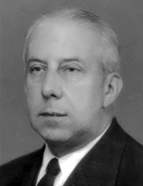

Clearly, this approach did not win unanimous applause, even among the monarchy ’ s supporters. The (radical) liberals, imbued with the abstract rationalism of jusnaturalism, formulated a political doctrine that dispensed with History as a founding value, although they invoked it as an example of the historical meaning of the changes they wanted to effect.
The moderate liberals (Chartists) sought to reconcile the past (History) with the present (modernity), trying to reconcile tradition with revolution. The monarchists of the Causa Monárquica [Monarchist Cause] were only committed to replacing political power without analysing what this entailed. The complexity of the issues raised and the different sensitivities towards them affected the intellectuals, creating space for polemics. This is what happened with Caetano Beirão.
One of these was marked by his opposition to Luís de Magalhães. In an article published in the journal Portugália , Luís de Magalhães defended the Charter as a traditional constitution. Caetano Beirão vehemently contested it. They were opposed by different conceptions of royal sovereignty and society. The former raised the question of Pedro ’ s legitimacy as sovereign and hence the illegitimacy of the Charter , aspects defended by the latter. In turn, the question of the individualism inherent in the notion of society proposed by the latter contradicted the organicist sense of society inherent in the Portuguese tradition and supported by the former. From this perspective, traditionalism and individualism were mutually exclusive , and it was impossible to argue in favour of combining them in a single text such as the Charter .
Two conceptions of the world and of life were clashing, with inevitable repercussions on human life, namely in politics, where the question of sovereignty was particularly acute. Having been raised in Portugal since the 1820s, it remained somewhat unsolved throughout the 19 th century until the proclamation of the Republic, then until the outbreak of the dictatorship and the Estado Novo. Caetano Beirão was no stranger to this. Legitimist by family tradition and personal choice, he criticised Fortunato de Almeida for the way he had dealt with the problem of the succession of D. João VI in volume XIII of História de Portugal [History of Portugal] . In his opinion, he had defended the legitimacy of Pedro as king of Portugal, the abdication of his daughter Maria da Glória , and the donation of the Constitutional Charter to the Portuguese with questionable arguments. Now, according to the principles set out in the Cortes de Lamego and, moreover, due to the reprehensible and offensive acts carried out by the Prince against his father and Portugal, having even declared himself a foreigner, only Miguel had the right to the throne of Portugal.
This work is financed by national funds through FCT - Foundation for Science and Technology, I.P, in the scope of the projects UIDB/04311/2020 and UIDP/04311/2020.
